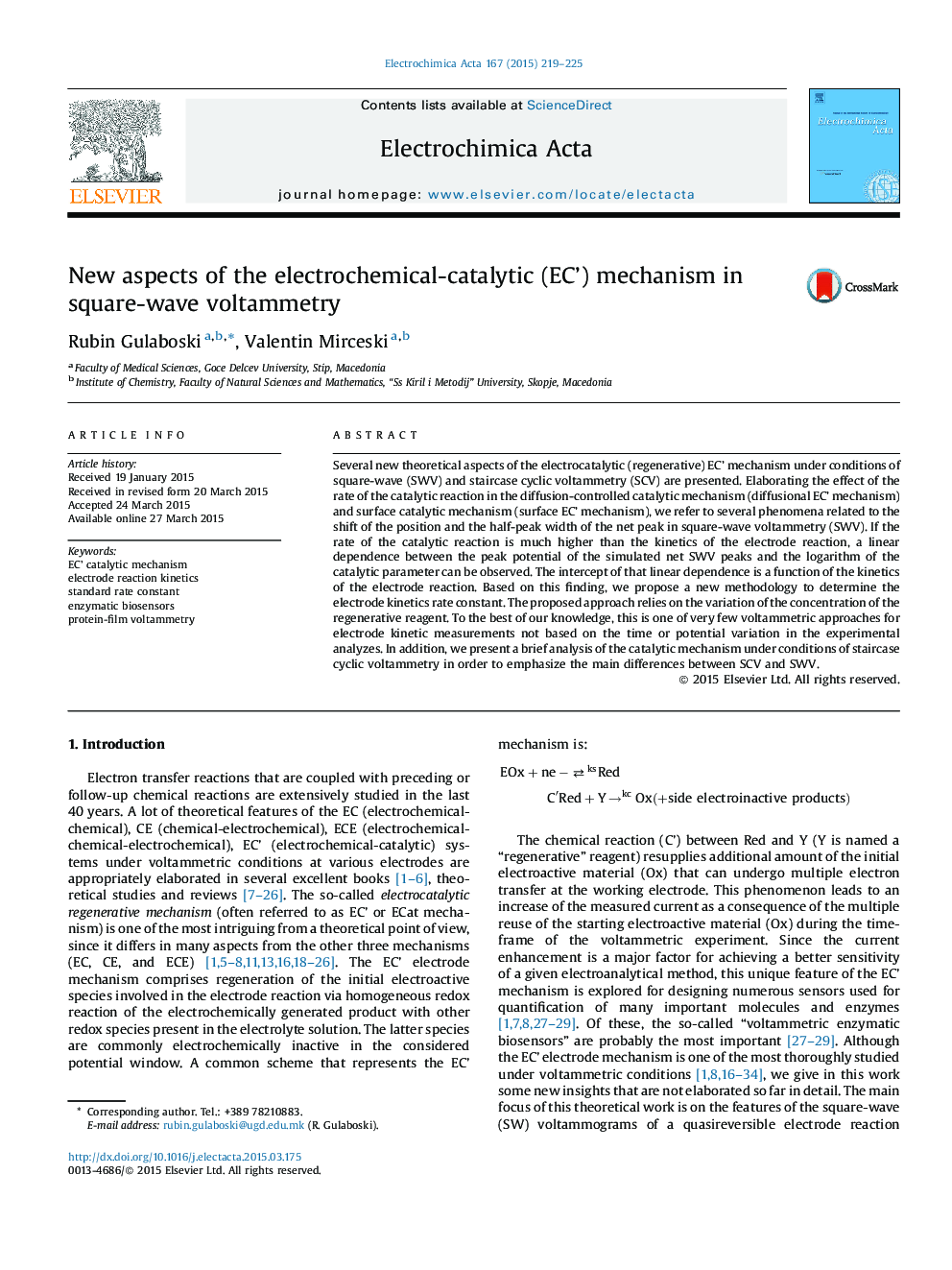| Article ID | Journal | Published Year | Pages | File Type |
|---|---|---|---|---|
| 184346 | Electrochimica Acta | 2015 | 7 Pages |
•New theoretical aspects of the EC’ redox mechanism under conditions of square-wave and cyclic staircase voltammetry are presented.•The effect of the catalytic reaction to the features of the voltammograms is theoretically considered.•Very high rates of the catalytic parameter produce shift of the peak potentials of the square-wave voltammograms.•New method for the determination of the kinetics of electrode reaction is proposed.
Several new theoretical aspects of the electrocatalytic (regenerative) EC’ mechanism under conditions of square-wave (SWV) and staircase cyclic voltammetry (SCV) are presented. Elaborating the effect of the rate of the catalytic reaction in the diffusion-controlled catalytic mechanism (diffusional EC’ mechanism) and surface catalytic mechanism (surface EC’ mechanism), we refer to several phenomena related to the shift of the position and the half-peak width of the net peak in square-wave voltammetry (SWV). If the rate of the catalytic reaction is much higher than the kinetics of the electrode reaction, a linear dependence between the peak potential of the simulated net SWV peaks and the logarithm of the catalytic parameter can be observed. The intercept of that linear dependence is a function of the kinetics of the electrode reaction. Based on this finding, we propose a new methodology to determine the electrode kinetics rate constant. The proposed approach relies on the variation of the concentration of the regenerative reagent. To the best of our knowledge, this is one of very few voltammetric approaches for electrode kinetic measurements not based on the time or potential variation in the experimental analyzes. In addition, we present a brief analysis of the catalytic mechanism under conditions of staircase cyclic voltammetry in order to emphasize the main differences between SCV and SWV.
Graphical abstractFigure optionsDownload full-size imageDownload as PowerPoint slide
